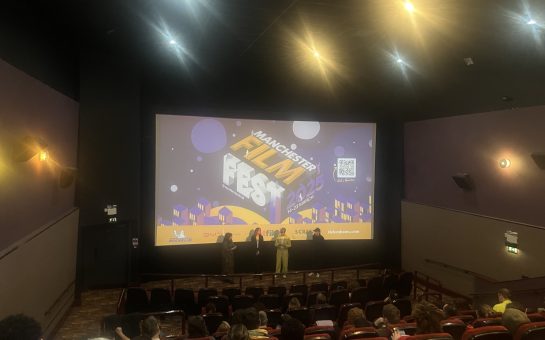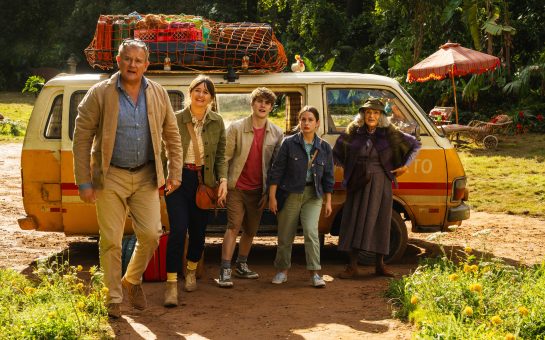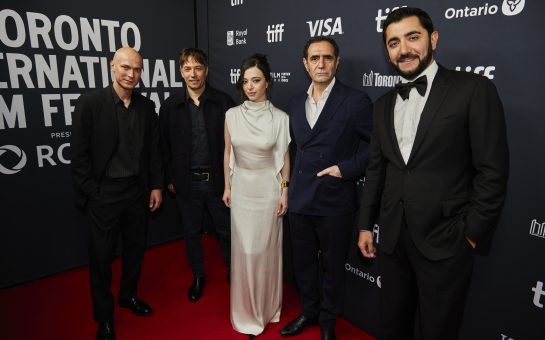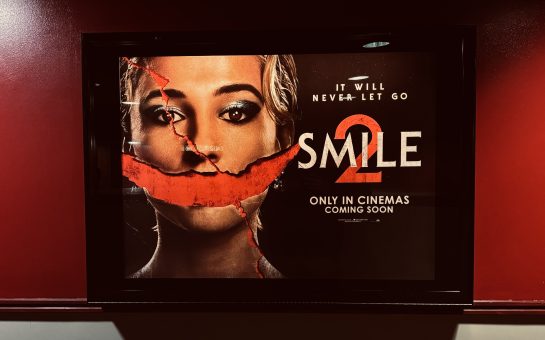Dealing with real life terrorist attacks in film is a bit of a grey area. On the one hand, widespread media coverage is exactly what these terrorists want.
On the other, these events inevitably carry moments of extraordinary heroism from ordinary people, stories which deserve to be told.
Last year we had two films released based on the Anders Breivik 2011 Norway attacks. 22 July, from British director Paul Greengrass and Utøya: July 22, by Norwegian director Erik Poppe.
The former included the terrorist frequently, the latter only for a split second, choosing not to give publicity to Anders, and rather focus purely on the survivors.
Hotel Mumbai goes with the route of the former, the more Hollywood approach, we see the terrorists arrive in Mumbai via a rubber dingy and then follow them as they split up to cause maximum chaos throughout India’s largest city.
They open fire in CST train station, the largest in Mumbai, indiscriminately mowing down commuters, before moving on to Cafe Leopold. The few survivors and passers-by flee, running straight towards the pride of Mumbai, the Taj Hotel.
They seek refuge in the gilded walls of the 5-star hotel, assuming safety amongst the privileged guests. The Lashkar-e-Taiba saw this coming clearly, as they blend in with the mob and enter the hotel amongst the chaos.
There are three main storylines followed throughout the attack, that of Arjun (Dev Patel), a working class staff member at the hotel, who has a heavily pregnant wife and young daughter at home.
Upon arriving for work, he realises one of his shoes has fallen out of his bag, and with the incredibly high standards of chef Hemant Oberoi (Anupam Kher), this simply won’t do. He’s sent home, but begs to stay at work, and gets his way – uh oh.
Among the guests he deals with are architect David (Armie Hammer), his highly important wife Zahra (Nazanin Boniadi) and sleazy Russian businessman Vasili (played convincingly by Jason Isaacs).
This trio are one of the main focuses of the plot, as David and Zahra desperately try to reconnect with their nanny Sally (Tilda Cobham-Harvey), who is with their baby son on a different floor of the hotel.
The third main plot line is that of the terrorists. And this is where the problem lays for me. In one scene, we see two of the attackers playing practical jokes on each other, and the audience are expected to laugh along. Meanwhile David sits metres away behind a food cart.
On November 26, 2008, India changed forever… #HotelMumbaiFilm in select theaters March 22. Everywhere March 29. pic.twitter.com/gnp52RS93S
— Hotel Mumbai (@HotelMumbaiFilm) March 13, 2019
David is risking his life trying to reconnect with his daughter, he’s within touching distance of two people who are hell bent on killing him and everything he stands for.
This is a scene that should be high tension, edge of your seat stuff. Instead, we have the two terrorists cracking jokes, completely taking you out of the seriousness of the situation.
Worse of all, this seems like an attempt to almost humanise the terrorists. Moments before we see them gun down hotel staff and guests without flinching, to then see them laughing at each other seems to take away from the seriousness of the situation.
I can understand the counter-argument to this, that obviously these terrorists are people as well, and probably would have cracked jokes with each other, they aren’t one-dimensional killing machines, but do we need to see it?
Doesn’t it just trivialise the deaths we see moments before? Does it add anything to the film other than a brief moment of comic relief that could of come from a different character?
The brutality of their actions is hardly hidden, characters are shot down in front the camera and their blood smears the walls around them. Bodies lay around, and the overall fear is palpable due to everyone involved putting in great performances.
Vasili’s profanity-laden insults are sufficient enough to break up the dark tone and got lots of laughs from the audience, seemingly proving there’s no need to make the terrorists ‘funny’.
Isaacs’ character has more development than most throughout the film, and is played convincingly by the British actor, who speaks in Russian for parts of his dialogue.
Another bone of contention with the portrayal of the terrorists came within the first ten minutes, when their leader, dubbed The Bull, who we only hear over the phone, says: “The whole world will be watching.”
These terrorists, who committed terrible atrocities across a city, wanted global recognition. So, Hollywood, what should we do in this scenario?
Should we put them in a film for the whole world to see again, over ten years since it happened? Or perhaps, even better, put them in a film for the whole world to see, AND have them play the fool for cheap laughs.
One thing that is nailed down to a tee is the directing, it’s hard to believe this is Anthony Maras’ directorial debut as he is assured throughout. Every decision feels calculated, and it will certainly be interesting to see where he goes next.
Despite this film’s best efforts, for me (as you can probably tell) it gives too much light to the terrorists, and despite its chubby run time, not enough to the good that ultimately prevailed.



